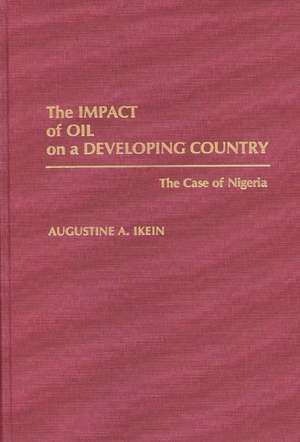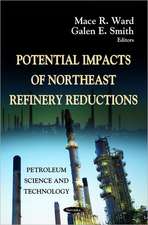The Impact of Oil on a Developing Country: The Case of Nigeria
Autor Augustin Ikeinen Limba Engleză Hardback – 10 dec 1990 – vârsta până la 17 ani
Preț: 439.85 lei
Preț vechi: 708.93 lei
-38% Nou
Puncte Express: 660
Preț estimativ în valută:
84.18€ • 87.56$ • 69.49£
84.18€ • 87.56$ • 69.49£
Carte tipărită la comandă
Livrare economică 12-26 aprilie
Preluare comenzi: 021 569.72.76
Specificații
ISBN-13: 9780275933647
ISBN-10: 0275933644
Pagini: 328
Dimensiuni: 156 x 235 x 19 mm
Greutate: 0.63 kg
Ediția:New.
Editura: Bloomsbury Publishing
Colecția Praeger
Locul publicării:New York, United States
ISBN-10: 0275933644
Pagini: 328
Dimensiuni: 156 x 235 x 19 mm
Greutate: 0.63 kg
Ediția:New.
Editura: Bloomsbury Publishing
Colecția Praeger
Locul publicării:New York, United States
Notă biografică
AUGUSTINE A. IKEIN is Associate Professor of Economics, Business, and Policy Studies at Delaware State College. Dr. Ikein is also a coauthor of Moral Equivalent of War? A Study of Non-military Service in Nine Nations (Greenwood Press, 1990).
Cuprins
ForewordPrefaceThe Evolution of the Oil Industry in NigeriaOverview: Nigeria in Modern TimesThe Impact of Extractive Economies Around the WorldSelected Studies on Oil Industry in NigeriaAssessment MethodologyFindingsSummary of Findings and Implications for Social and Economic PolicyThe Future of Oil and the Producing AreasAppendixBibliographyIndex













